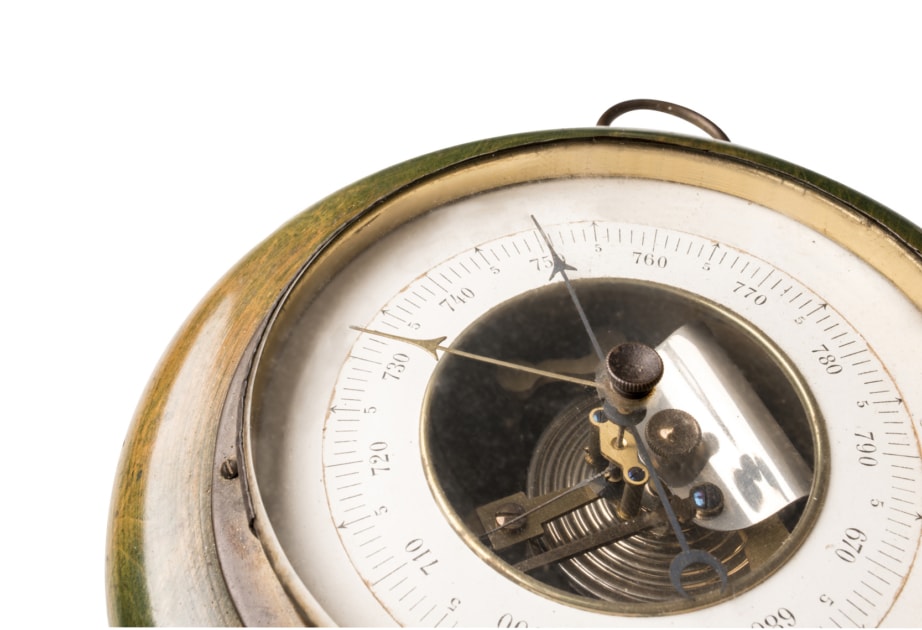Meteorology And The First Forecasters
Humans have been predicting the weather for as long as we’ve been around. Learn more about the history of weather forecasting!

From the beginning of time, weather forecasting (meteorology) has affected the course of history. Accordingly, the quest to understand, predict, and adequately communicate conditions in a timely manner has consumed civilization in one form or another for hundreds and even thousands of years.
Based on Aristotle’s treatise on earth sciences Meteorologica, the name “meteorology” has come to mean the science of the atmosphere and weather. But long before the Greeks delved into the tenuous world of weather observation and prognostication, ancient Babylonians–among the earliest weather forecasters–had learned enough about the subject to write “when a cloud grows dark in heaven, a wind will blow,” opening the door to exploration and discovery.
In China’s Shang Dynasty, circa 120 B.C., humidity was measured by weighing charcoal after exposure to the air and noting the increase in weight. In India, astrologer Varahamihira’s work, Brihat Samhita, written around 500 A.D., reveals some knowledge of atmospheric processes. Unlike Chicken Little, while those ancient civilizations may not necessarily have believed the sky was falling, they did monitor its changing appearance, applying what they observed to decisions about crops, religious ceremonies, animal and bird migrations, and other elements of their day-to-day existence. In the 21st century, weather still impacts agriculture and other food resources, property, the military, the maritime, aviation, and, subsequently, the economy.
The Sky’s Not the Limit
Commonly called “the first indicator” in weather forecasting, the sky and its varying cloud formations continue to provide modern meteorologists with information critical to predicting weather conditions and patterns. Variables in the earth’s atmosphere, including temperature, air pressure and water vapor, and the ways in which the variables interact with one another, impact weather, as does the late 20th- and 21st-century scourges of greenhouse gasses and global warming. But how did we get here? How did the science of meteorology evolve from predicting storms or cold winters based on the thickness or thinness of onion skins to elements like thermodynamics and Doppler radar?
The vast history and discovery of atmospheric principles and forecasting has been an epic journey. The search for weather’s why’s, when’s, and how’s has been arduously undertaken by legions of ancient philosophers, alchemists, religious figures, naturalists and historical figures like Leonardo da Vinci, Galileo, Gabriel Fahrenheit, Edmund Halley (most famous for the eponymous comet), and Ben Franklin and his famous lightning experiments. More modern day pioneers and practitioners of the science use sophisticated scientific tools and resources such as satellites, climate models and “ensemble forecasting” to define meteorology’s evolving and cutting edge results.
Various early civilizations were noted for finding ways to assess wind direction. According to records, the earliest identifiable weathervane dates as far back as the first century B.C. The first American weather vane is credited to Colonial coppersmith and tin plate worker Shem Drowne (1683 — 1784) in 1716.
In fact, his grasshopper weathervane, crafted years later in 1742, currently sits atop Boston’s Faneuil Hall. Factoring wind speed and velocity into the study of weather, in 1450 Italian architect Leon Battista Alberti described the first known mechanical anemometer–the term was derived from the Greek word anemos, for wind. More than 200 years later, English physicist Robert Hooke, sometimes credited instead of Alberti, reputedly reinvented Alberti’s device.
Beth Herman
Beth Herman is a freelance writer with interests in healthy living and food, family, animal welfare, architecture and design, religion, and yoga. She writes for a variety of national and regional publications, institutions, and websites.






the article is very enriching and has a lot of resources about differents ways of predicting the weather , i am more interested of how it affects the time of the year . Or people react according to different changes that are physiological, and physical in a sense.
As a fishing guide for the past 25 or so years on Bull Shoals Lake in Arkansas & Missouri, predicting the weather has become a pet endeavor of mine. Having a grandfather who was Cherokee gave me early training in the field and a tremendous help in avoiding bad conditions, although there have been notable exceptions. Your article on the history of weather forecasting is great and very well written. The old saw about “Red sky in the morning…..” etc., which is actually a paraphrase from Matthew 16:2-3, is still my first observation on the days weather and it seldom fails me. Definitely enjoyed the article.